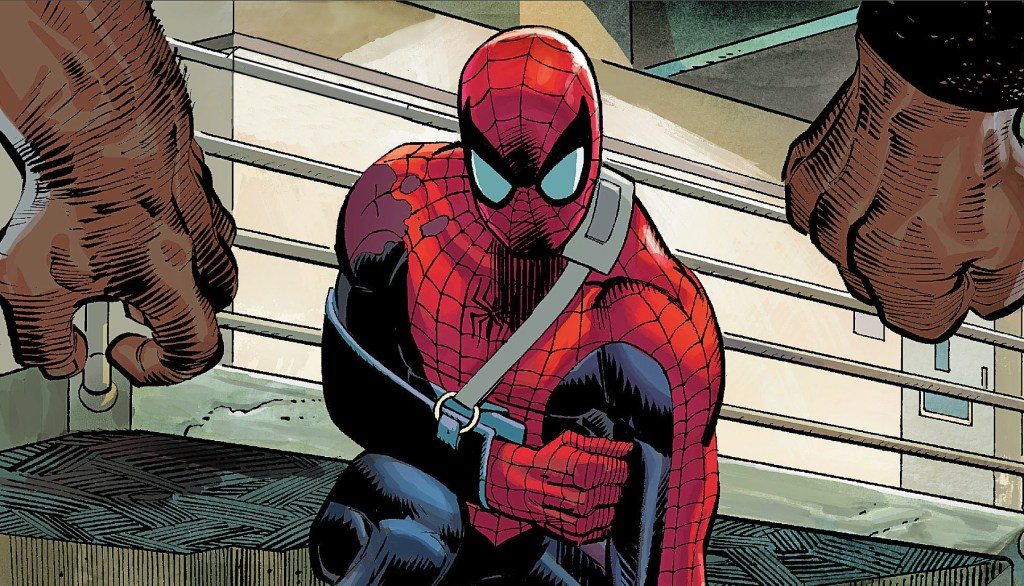The death of Uncle Ben is the foundational tragedy of Spider-Man. It’s the event that forges the boy into a hero; a trial of guilt and responsibility from which Peter Parker emerges, forever changed. “With great power comes great responsibility”— these famous six words, echoing Ben’s final lesson, are the moral compass that guides every single one of Peter’s web-swinging adventures. They are the creed, the burden, and the very essence of Spider-Man. For decades, the comics have reinforced this idea over and over by rehashing Ben’s death: Peter’s failure to stop the burglar, his subsequent realization of the consequences, and the lifelong penance he pays. Uncle Ben’s death is not just a plot point; it is the philosophical core of Spider-Man’s existence. But what if this cornerstone of the mythos is actually a prison? What if the guilt, rather than being a motivator for greatness, has been a shackle, preventing Peter Parker from reaching his full potential?
Videos by ComicBook.com
Uncle Ben’s death, while tragic, was actually a fundamental hinderance to Peter’s growth as a hero, as the guilt he carries prevent him from truly rising to greatness.
The Guilt of a God-Like Power Cripples a Hero

Peter Parker’s journey begins with a moment of selfishness expected from a petulent teen. After gaining his powers, he initially uses them for personal gain and spectacle, not for heroism. He lets a burglar run past him, a decision he dismisses with a shrug, saying it’s not his problem. This is the moment that sets the stage for the tragedy. When that same burglar later kills Uncle Ben, the link between Peter’s inaction and Ben’s death becomes an indelible brand on Peter’s soul. This moment is essentially Peter’s hero origin story, but in reality, it’s a crippling source of guilt. “With great power comes great responsibility” is not a source of strength, but a constant, self-imposed burden that weighs Peter down. It’s a responsibility born not of genuine heroism, but of atonement.
Consider the arcs of other heroes. Batman’s trauma from his parents’ death fuels a relentless war on crime; a proactive crusade to prevent others from suffering his same, terrible fate. Superman’s responsibility is born of his innate goodness and his desire to protect a world that has embraced him and claimed his as one of its own. Their motivations are externally focused. Steve Rogers becomes a Super-Soldier to fight for his country, protecting those suffering from Hitler’s terror.
Peter’s story, on the other hand, is internally focused and retrospective. Every life he saves is a vicarious attempt to save Uncle Ben. Every heroic act is a penance for a past sin. This isn’t a healthy foundation for a hero; it’s an endless cycle of self-hatred. This constant state makes Peter afraid to take certain risks or actions in ways that other heroes wouldn’t think twice about. He often hesitates, over-analyzes, and second-guesses himself because he is terrified of making another mistake that could lead to another death. Another hero like Daredevil, on the other hand, quite literally throws himself headfirst into danger without thinking to save a life (though Matt Murdock’s brand of heroism comes with its own problems).
This fear of failure, rooted in the memory of Uncle Ben, makes Peter less decisive and less effective in high-stakes situations. It keeps him from taking the calculated risks that are sometimes necessary to win. In a sense, Uncle Ben’s death has made Peter an eternally reactive hero, forever responding to threats instead of proactively shaping his own destiny.
A Hero’s Potential Is Left Untapped by an Unending Grief

This crippling guilt complex has actively stunted Peter’s personal and heroic growth. The constant need to prove himself worthy of Uncle Ben’s legacy has kept him from evolving beyond the young man who made that fateful mistake. He is trapped in a state of teenage angst, even as he becomes an adult. The comics are full of examples of Peter struggling with his identity, his relationships, and his finances, all of which can be tied back to his sense of responsibility. He sacrifices his personal life, his friendships, and his career, not because it’s the right thing to do, but because he feels it’s his punishment.
Imagine a Spider-Man unburdened by this guilt; a Spider-Man whose motivation comes from a place of pure, unadulterated heroism. This Peter would be free to explore the full extent of his powers, to innovate, and to become a truly groundbreaking hero. He would be less likely to be manipulated by villains who exploit his sense of responsibility, and he would be able to see the bigger picture.
We have seen glimpses of this in other versions of the character, particularly in some “What If?” stories, where Peter’s life takes a different turn. Without the crushing weight of Uncle Ben’s death, these versions of Peter are often more confident, more powerful, and more successful. They are not defined by a past tragedy, but by a future full of possibility. The ultimate tragedy of Uncle Ben’s death is not the loss of his life, but stifling his nephew’s full potential. Yes, the death turned Peter into a good hero, but prevented him from becoming a great one. The very event that created Spider-Man might also be the one thing holding him back from true greatness, leaving him a hero forever bound by a ghost and a guilt that he can never fully escape.









